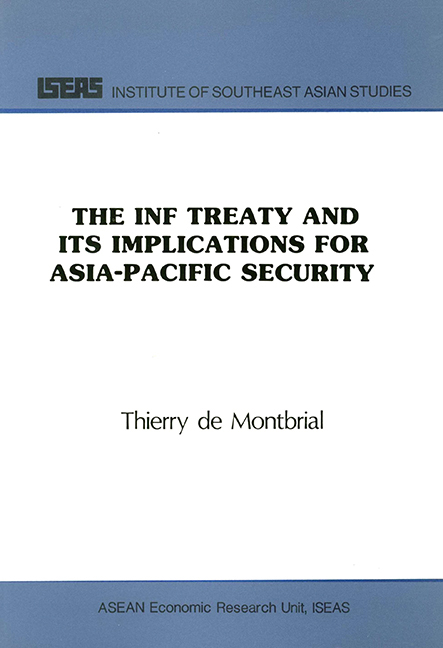The INF (Intermediate-range Nuclear Forces) Treaty and Its Implications for Asia-Pacific Security
Published online by Cambridge University Press: 21 October 2015
Summary
Although I will try not to forget the last point of the title, since the core of the topic tonight is Europe and the implications of the evolutions in Europe, I will start with some reflections about the future of Europe or to be more precise, about the Soviet Union and its policy towards Europe. Indeed, with regard to the future of Europe, for obvious geographical, physical, and historical reasons, the most important factor to consider is the Soviet Union. Then, I will turn to the INF Treaty which was signed last December between the United States and the Soviet Union and I will try to explain why, although it is a major achievement in the field of arms control, there may also be reasons to be worried about future developments. In my next point, I will underline the stakes for the next few months and years. The next few months of this year might be crucial in some important respects. To end with, I shall try to give you a few thoughts on the implications of these developments for the rest of the world.
IS THE SOVIET UNION REALLY CHANGING?
Glasnost, perestroïka — these two words have been ringing in our ears for some time. What does lie behind them? And more fundamentally, is the Soviet system really about to change? If so, in what direction? Is the hawk turning into a dove? Should we trust this dove and assume that the Soviet Union is now entirely concentrating on the prosperity of its people? And therefore, should we help them and, to show our goodwill, should we even agree to give up our nuclear arsenal? These questions raise some preliminary remarks.
First, the Soviet Union is a communist country and as such it continues to stick to the Marxist-Leninist ideology. Mr Gorbachev is himself a purest offspring of the system through his education first, later through his career: he climbed the ladder as a faithful communist and a member of the Party.
- Type
- Chapter
- Information
- Publisher: ISEAS–Yusof Ishak InstitutePrint publication year: 1989



